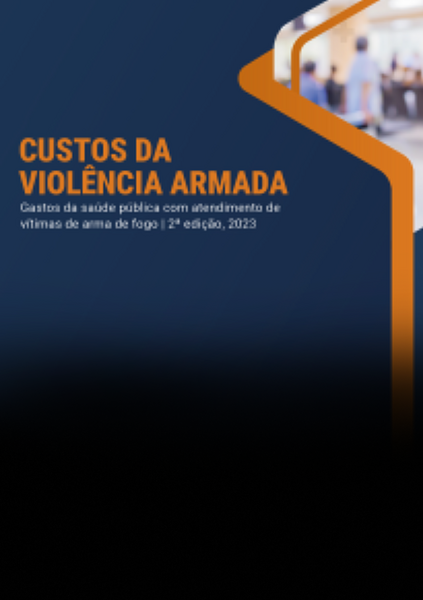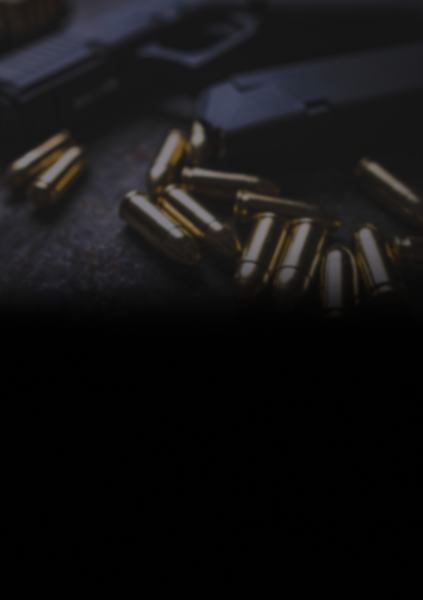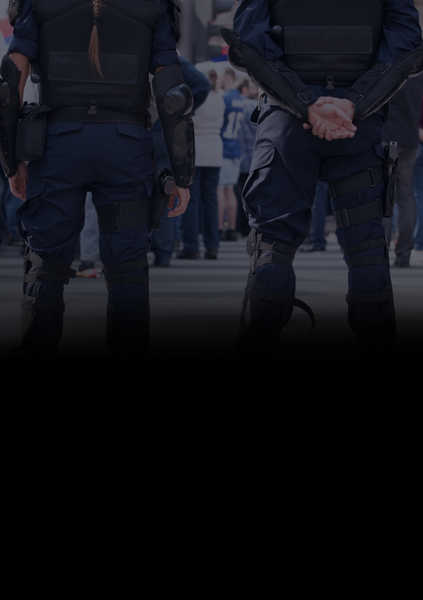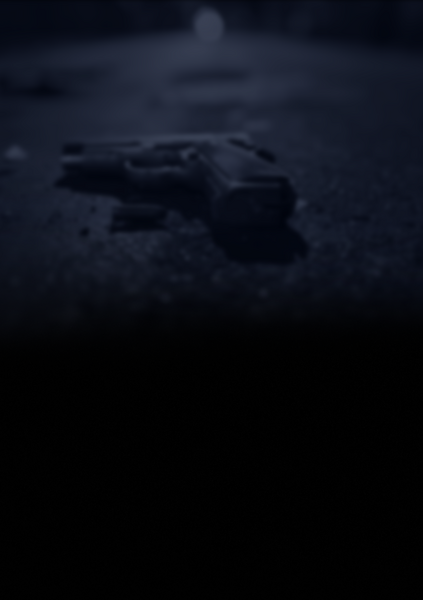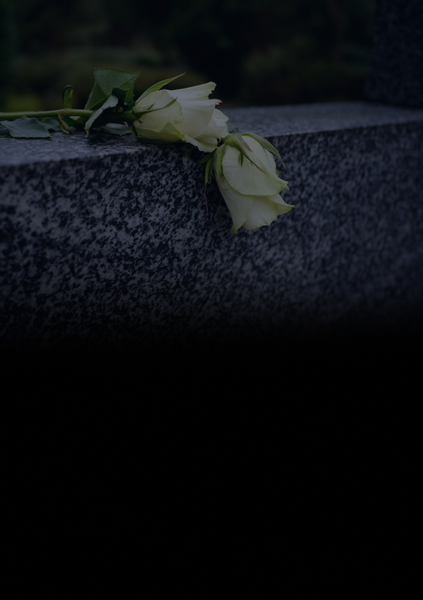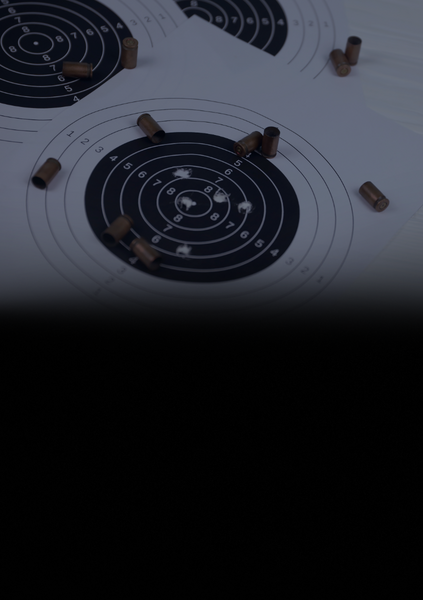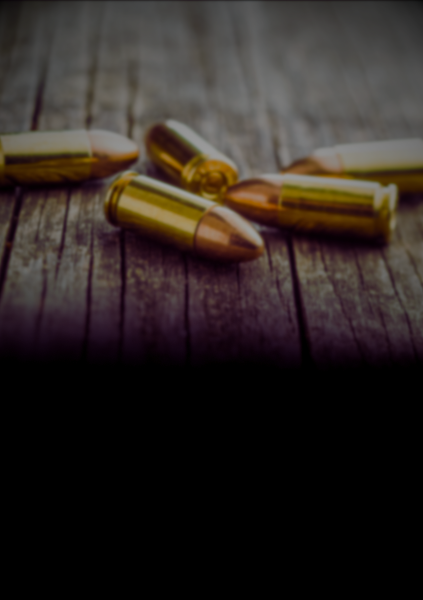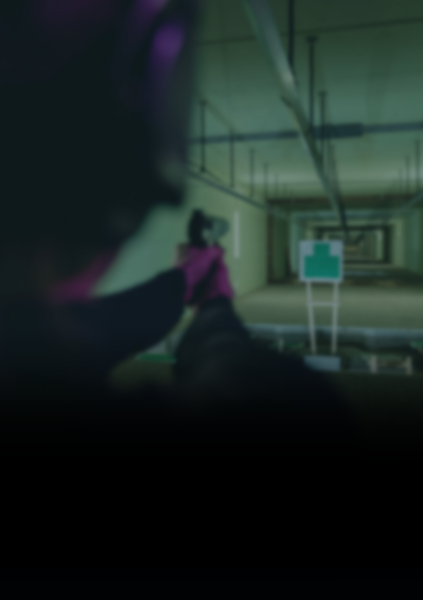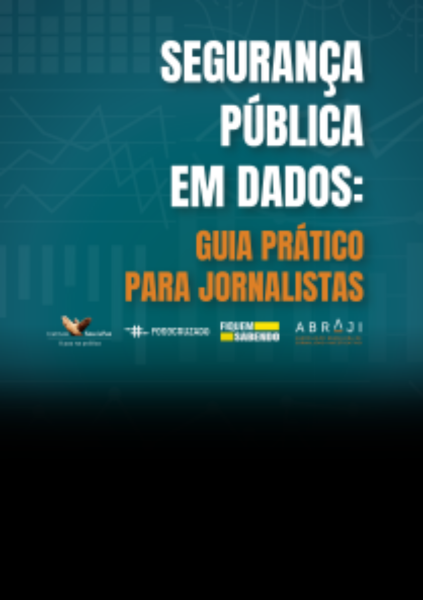Reportagem publicada pelo Global Voices (clique para acessar o texto original)
To Cecilia Olliveira, the problem is not one to be solved with elections or in one government
In 2016, journalist Cecília Olliveira was searching for data on shootings that took place in Rio de Janeiro for a story, but found a lack of registers instead. The solution was to do the count on her own, by hand, cross-referencing research in social media, police reports, and the press.
This is how Instituto Fogo Cruzado (Crossfire, in Portuguese), where she is the executive director, was created. The institute uses technology to build its open-sourced data on gun violence, available to all, also helping to preserve lives by informing people of what is going on in their regions. So far, its database covers almost 50 cities from three metropolitan areas in Brazil — Rio de Janeiro, Recife, and Salvador.
An estimated 1 million guns are in the hands of civilians as of 2022, licensed hunters, shooters, and collectors, known as CACs. This has almost tripled since the end of 2018, when President Jair Bolsonaro was elected.
The number was publicized by the Army after being obtained by institutes Sou da Paz and Igarapé through the Access to Information Law (LAI). Only in the Amazon region, the number of licenses for civilians increased by 700 percent. The total national number now surpasses the guns in the hands of the armed forces.
Registered CACs even managed to get 23 people elected this year, forming their own bloc in Congress. Loosening gun control was one of Bolsonaro’s promises prior to being elected. In August, the Supreme Court issued injunctions trying to put breaks into the measures.
In a conversation via e-mail with Global Voices, Olliveira analyses the scenario regarding guns in Brazil:
Global Voices: Fogo Cruzado indicates data from over 10,000 police operations/actions registered, with over 44,000 shots fired, 13,312 deaths, and 10,089 wounded, around three metropolitan areas. How can we read these numbers? What do they say about gun violence in Brazil?
Cecília Olliveira: Over the past 20 years, we’ve seen how crime in Brazil has changed. Drug and gun trafficking routes have changed, new gangs appeared and alliances between gangs and militias (paramilitary groups made up of current and former police officers) were recreated inside and out of prisons. The alliances and political goals are also different. All of these have impact in the construction of public policies — but also in the strategic lack of them.
The data reflect a series of gun violence problems in the Brazilian state capitals. A good portion of the states do not have a public security plan prioritizing people’s lives, to avoid violence rising or even the surge of new armed groups. The consequence is that capitals such as Rio and Salvador are split between different armed groups and territories disputes, besides the police, that holds highly letal operation under the pretension of solving the problem. In Recife, data shows a high number of dead people, marked by several deaths by order.
GV: Who are the main victims of gun violence in Brazil?
CO: Poor and Black people who live in the favelas and peripheries. The Atlas da Violencia study showed, in 2021, that Black people are 2.6 times more likely to be killed than white people. Black people make up for over 77 percent of homicide victims in Brazil, even though they represent a little more than half of the population. The data also revealed that, while the number of deaths among Non-Black population has fallen 33 percent, the number of Black people killed increased 1.6 percent.
GV: Can you explain how Fogo Cruzado uses data and technology to save lives?
CO: Through a cellphone app, Fogo Cruzado receives and publishes informations about shootings, checked in real time by a local staff of experts. This information is available in the first open-source database on gun violence in Latin America, which can be accessed via our institute’s API for free.
We track and map shootings and gunfires in almost 50 Brazilian cities, in the metropolitan areas of Rio, Recife and Salvador. We also map the impact of this violence, as in the closing of schools, streets or health units, who are the victims impacted by it, under which circumstances, etc., unpacking the shooting information in more than 30 indicators about gun violence.
This information arrives to people in real time and allows them to search for immediate shelter and make decisions about their daily lives. They can decide which route is better to go to work, if their buses are following their normal schedule, if they can go their health units or if it’s closed due to a shooting. The users can keep themselves safe.
Plus, the data, reports and analyses produced allow the construction of better proposals for public safety, based on life protection.
GV: Jair Bolsonaro’s government loosened up on gun laws in Brazil, which led to the number of CACs (registered hunters, shooters, and gun collectors ) skyrocketing. In Fogo Cruzado’s database, did you observe the impacts of this?
CO: We follow attentively what has been done in gun policies. News about guns deviated, stolen, or misplaced — including to gangs and militias — have been more constant. News about the the Army’s mismanagement over the guns arsenal in the hands of civilians is worrisome. How many guns are there, which type, in who’s hands? The supervisor agent doesn’t know. And this is only good news for someone with bad intentions.
The news about an armed youngster, who broke in a school in Bahia and killed a student with a disability, has shocked Brazil. In the last few months, stories about children carrying guns into their schools or students threatened with pictures of guns have been more frequent. There are also reports of massacre attempts in different states. It’s a growing concern: in half of the shootings in schools in Brazil, the gun was obtained inside the shooter’s home, according to the data of one of our partners, Instituto Sou da Paz, from 2019.
GV: Amidst this high number of CACs, surpassing the guns in the hands of the armed forces already, a story published by UOL news outlet showed the Army doesn’t know the numbers in each capital. What are the risks of this lack of control?
CO: Without proper control about the number of guns circulating in Brazilian cities, you can’t establish proper public policies to avoid/reduce crime. The lack of control facilitates diversion to several criminal groups, which can impact the number of robberies in the streets, people wounded by guns, homicides, etc
GV: Other recent news stories have shown that criminal organized groups benefited from the changes in the law to get legal guns. Where did the policy under Bolsonaro go wrong?
CO: Brazil already had many problems with guns and it was one of the countries where people killed the most in the world. But now, we have even more guns in the streets, and mechanisms of supervision and investigation do not keep up with this flexibility on gun use. The result of this is that trafficking guns became easier.
In January, Rio’s police found 54 weapons, among pistols, rifles and shotguns, at one CAC’s house. He was taking advantage from being registered as a CAC to get more easy access to guns and then re-sell them to Comando Vermelho (Red Command, one of the main gangs in Brazil). Obviously, the problem is not being a CAC. The flaw is in the government control of such guns that go without supervision and then supply dealers, militias and death squads.
The responsibility over CACs is from the Army. This CAC got three licenses from this institution, which despite saying it would cooperate with the investigation, kept the information about the license of the collector under charge under secrecy. Why? Who is benefiting from it? The deputy himself, who worked on the case, Marcus Amin, said that flexibility has created new uses for the CACs. In an interview to TV show Fantastico, he stated that “it’s a new category that it’s been used to camouflage, conceal gun trafficking. The person uses a label of legality, a cloak of legality, looking to hide their criminal activity.”
GV: How has the gun industry lobby operated during the current government?
CO: The gun lobby has operated almost as a federal government branch. They’ve already invested in liberating gun carry licenses, and they are now going to state parliaments trying to reduce local tax over firearms. At least 23 Brazilians states (out of 26, plus the Federal District) have law proposals to change the aliquot, according to Instituto Sou da Paz. Out of the 35 law proposals, 21 are aimed to public security officials such as military and civil police, firefighters, metro police and prison guards. The other 14 include in the list of beneficiaries the CACs. According to a survey, four of the 35 proposals already became law and one of them contemplates the CACs, beside public security agents.
The president’s son, federal Congress man Eduardo Bolsonaro, for instance, had meetings with the director of the Federal Highway Patrol (PRF) to question police stopping and approaching CACs. He was with a lawyer of a movement called Pró-Armas Brasil (Pro-Gun Brazil), Marcos Pollon. This happened after a news story aired by TV Band showing highway police stopping CACs with guns in their cars — which could be illegal, depending on the case.
In a case revealed by newspaper Folha de São Paulo, Pollon shows offering support to candidates in exchange of jobs in the National Congress. He says: “We ask every candidate for their cabinet legal team since we want to conduct the gun discussion in the cabinet. So, law proposals, manifests, we want to do it.”
GV: The Supreme Court (STF, in Portuguese) has been taking measures trying to put breaks in some of these changes, but can they have any real effect at this point?
CO: The measures taken by the Supreme Court were important — even though unduly late — but by themselves they do not a problem that goes deep and it’s even hard to measure, once we do not have all the quality data over sells and gun circulation in the country. The Army itself, which is the supervision organ, has already said they do not know how many, which type and where are all the guns registered since 2019.
This is not a problem to be solved with elections or an eventual revocation of decrees. The thousands of guns already bought are already in the streets and this is the scenario we will have to deal with in the years to come. There is no political climate for a disarmament campaign or political support in the Congress to carry out changes. Managers and legislators need not only study the current political scenario, but to understand strategy and plan future actions — which is really hard when one thinks and prospects projecting a timeline of four in four years. It’s necessary that people are committed to State policies, not government ones.
GV: How do you read all this context — increasing armed civilians, in the middle of a hate political speech and the discredited over the electoral system by Bolsonaro — for the current time in Brazil?
CO: The access to guns was expanded and control mechanisms did not follow the growth pace of guns in the hands of civilians. Today there are more civilians armed in Brazilian than military — and the Army doesn’t know where these guns are or their type. In practice, it means that investigating crimes committed with fireguns, deviations, robberies, misplacements, it’s much harder. And it wasn’t simple at all before. The rates of crime resolution in Brazil are derisive, even though there are an annual average between 40 and 50,000 homicides, with 70 percent of them using guns as crime weapon.
The hate speeches have been encouraging unbalanced people to solve misunderstandings and conflicts with guns. We’ve already seen cases of people going to ask about a delay in pizza delivery and threatening the shop employees, a young man shot because of sandwich cupom and so on. But there are also crimes committed against political opponents, like the man shot inside of a church (after declaring support to Lula) by a bolsonarista in Goiás.
And it could be a lot worse. There has been an attempt from the federal government, stopped by the Federal Psychology Council, to extend the due date of the psychological evaluation of the citizen who carries a gun, from 5 to 10 years. The Council said that this evaluation is a tool to analyze the aptitude of those who want to own guns and that psychological conditions change over the years, hence the time frame of a decade it’s not adequate when the idea is to protect society.

